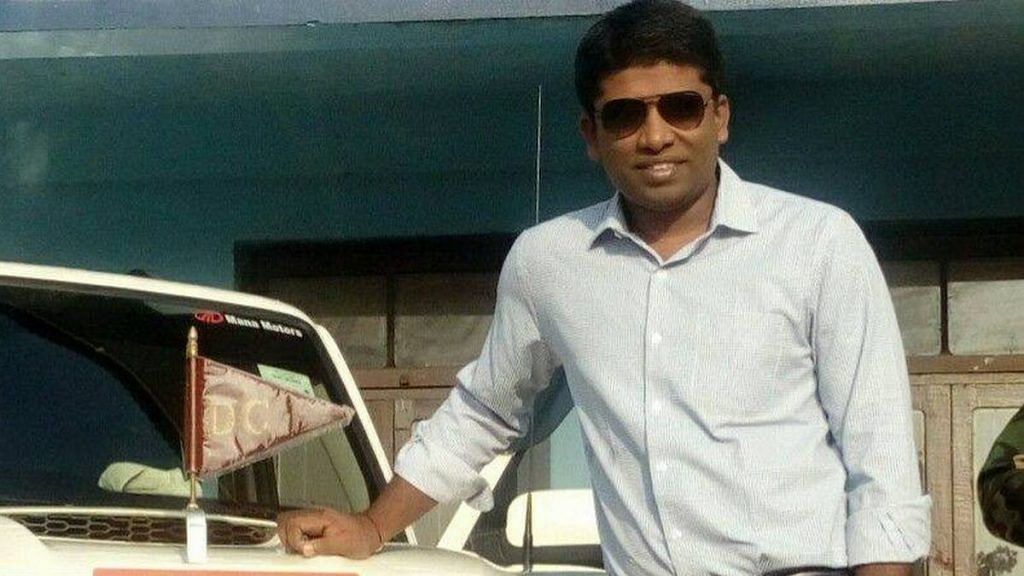Given how difficult it is to enter the Indian Administrative Service, Kannan Gopinathan’s resignation would have captured public attention even if it had not been in protest against the Narendra Modi-Amit Shah government’s clampdown in Jammu & Kashmir, even if he had not previously distinguished himself by anonymously slogging it out doing disaster relief work Kerala in 2018.
To an ordinary person, the act of walking away from something that millions aspire for and only a few hundred get might appear irrational or worse, insane. To cynics who expect public officials to be bent or pliant, Kannan is a naive misfit who would have failed psychometric testing for the job had there been one. To the liberals at the fringes of public discourse, he’s a hero who chose liberty over complicity.
Also read: ‘Disillusioned’ after J&K crisis, IAS officer quits service. Gets trolled as anti-national
A moral dilemma
Kannan brings to sharp focus the moral dilemma of a conscientious public official: What do you do when the government’s policy diverges from your personal convictions on the right thing to do?
In ordinary circumstances, there is the option of recording your dissent, but implementing a lawful decision that you disagree with, to the best of your abilities. Civil servants frequently go through such episodes, and after a while, many choose not to even bother expressing a difference of opinion on file, lest it ruffle powerful feathers.
The dilemma assumes an altogether different level of seriousness when the circumstances are extraordinary. What do you do when you perceive government policy being illegal, unconstitutional or even immoral? The moral dilemma becomes one of trying to change things for the better from the inside, or quitting to fight from the outside.
At a time when the world is looking for simple moral certitudes, it is tempting to declare one or the other position as the right one, and either celebrate IAS officer Kannan as a hero for quitting or denigrate him for being “anti-national” for having the temerity to publicly disagree with the government. Yet, to do so would be a mistake: for while Kannan has made the right choice, it is not necessarily the only right choice. A different person in his shoes could well choose to stay on, and in doing so, wouldn’t necessarily be making a less ethical decision.
Also read: Modi govt clamps down on IAS, its association goes conspicuously silent
An ethical calculus
Giving his reasons for resigning Kannan said that he felt as a civil servant he could no longer pursue his ideals. Referring to the Modi government’s clampdown in Jammu and Kashmir, he told Manorama that “it is the worst social and political situation after the Emergency. The fundamental rights of over 80 lakh people are suspended without even officially declaring an Emergency…I cannot fathom the guilt and regret of not acting on time, when I think about such violation of rights our society is going through.” He is not against the government’s prerogative to abrogate Article 370. Rather, he objects to the de facto suspension of fundamental rights of Indian citizens in Jammu and Kashmir. He does not want history to count him as complicit in an act he considers wrong.
So, he rightly quit. In his ethical calculus, the benefit of fighting from the inside was lower than the costs of suppressing the voice of his conscience.
Yet, a different person in his shoes could have done the right thing by staying in service. Consider.
Every big organisation has good people, bad people and the ones in between. The good do good things, the bad do bad things and the ones in between sometimes do good things and at other times, do bad things. The final outcome is the sum of the resultants of the consequences of the actions of these three types of people. If our cities are safe, our villages livable, our law enforcement trustworthy, and our judiciary dependable, it is to the extent that the actions of the good outweigh the actions of the rest. If we see things are going downhill in the country, it is to a great extent due to the scales tipping against the good people.
Also read: These IAS officers are scripting stories of change across India & making lives better
What a good republic needs
To arrest India’s decline, it is important that the government attract, retain and empower the good guys. Kannan’s leaving, by all accounts, is a loss to the government. Given his track record in Mizoram and Dadra & Nagar Haveli and his volunteering in Kerala, India lost a good administrator. His stated reasons for joining the IAS, his standing up to a political appointee and articulation of his reasons for leaving mark him out as an officer the government of India ought to have fought to retain. It sent him petty show cause notices instead.
India is desperately short of public officials with constitutional morality – people in government who uphold the dignity of their office. Judges stray beyond their mandate and make policy. Legislators stray beyond their mandate and take over administration. Civil servants do the bidding of their political masters, even when the demands are unconstitutional. If the Indian republic is in a crisis today, it is fundamentally because overstepping constitutional dharma is par for the course. Especially at such times, it is in the national interest that conscientious civil servants stay on. They are frontline soldiers in the battle to restore the constitutional health of the republic.
Kannan Gopinathan is right. Others like him who did not resign are also right. There is no universally correct choice. The lesson from Kannan Gopinathan’s resignation is not that everyone should do the same, but that each individual must consciously arrive at their own right answer.
The author is the director of the Takshashila Institution, an independent centre for research and education in public policy. Views are personal.
